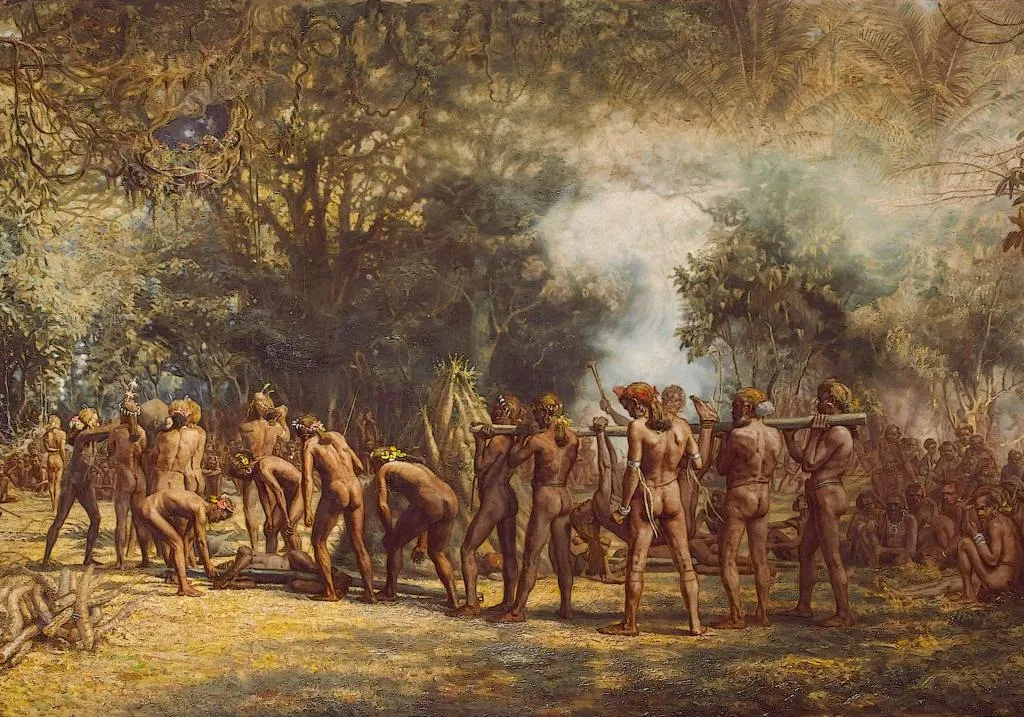Table of Contents
Hobson’s Pledge Trust
Will Tikanga law, that a High Court justice cited in a coastal area ruling, include inter-tribal warfare, cannibalism, slavery, and other primitive customs, or will it just be a modern version, historian Dr John Robinson asked this week.
Dr Robinson, who wrote Dividing the nation: the return to tikanga, was asked to comment on Justice Churchman’s May 7 judgement which awarded customary marine title to a strip of Bay of Plenty coast to a private group on the basis of a simple, unequivocal assertion of an old Maori system of law.
Dr Robinson wrote.
To be clear, tikanga is the name for Maori customs and traditional values. A custom is a traditional and widely accepted way of behaving or doing something that is specific to a particular society.
The law is the system of rules which a particular country or community recognizes as regulating the actions of its members and which it may enforce by the imposition of penalties.
Those who want tikanga to become part of New Zealand’s law confuse the issue from the outset by asserting that pre-1840 tikanga was law.
Dr Robinson warned that the meaning of tikanga today is deliberately confused, with no clarity as to whether traditional Maori ways are implied or whether it as a version transformed around 1840 by the widespread shift to Christianity, and further cultural development since.
He wrote.
The resulting confusion allows Maori authorities to claim that they alone can interpret and explain New Zealand common law, and we are required to sit silently on the side-line and accept whatever they pronounce
The Churchman judgement provides a list of core values at the centre of tikanga, as suggested by Supreme Court Justice Joe Williams, namely:
- Whanaungatangam,or the source of the rights and obligations of kinship;
- Mana, or the source of rights and obligations of leadership;
- Tapu, as both a control on behaviour and evidence of the indivisibility of divine and profane;
- Utu, or the obligation to give and the right (and sometimes obligation) to receive constant reciprocity; and
- Kaitiakitanga, or the obligation to care for one’s own.
The coupled whanaungatanga and kaitiakitanga require priority to members of an extended family. But the granting of favours to friends is corruption. Using this to guide behaviour in local and central government, and in the civil service, invites nepotism.
Social control through tapu, plus the insistence on the “indivisibility of divine and profane”, contradicts a basic assumption of a secular society such as New Zealand claims to be, where beliefs in spirituality and religion play no part in government and law.
The Churchman judgement uncritically said that “customary rights in land or sea were sourced in a number of ways, the most common of which are … take raupatu (victory and battle).”
Conflict resolution through conquest was most common in pre-Treaty Maori society as war parties raided other tribes, to kill and often eat foes, to take prisoners as slaves, to drive peoples from their lands and to finally reduce the country to a state of complete disruption and misery (in the 1820s and 1830s).
“That feature of tikanga must be firmly rejected before we can start to consider bringing tikanga into social mores”, Dr Robinson wrote.
“The values of traditional Maori society led to widespread killing and a complete collapse before the British were called upon to provide law. The values of the tikanga of today are totally unclear and conflict with those of civilised society. Only a fool would accept these prescriptions”, Dr Robinson wrote.
Read Dr Robinson’s article in full here.
Please share so others can discover The BFD.









